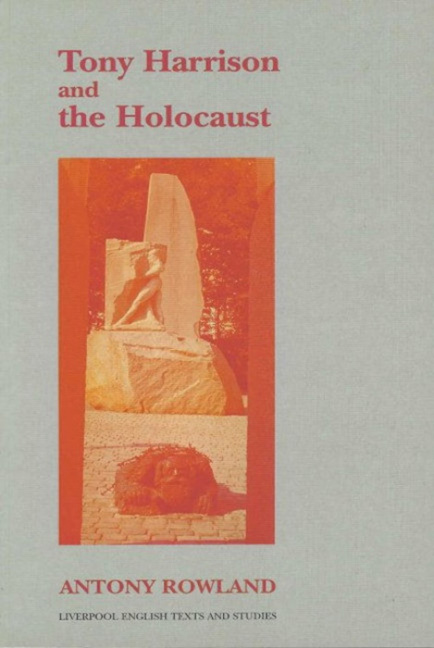Book contents
- Frontmatter
- Dedication
- Contents
- Acknowledgements
- Introduction
- 1 Cinema, Masturbation and Peter Pan: A Non-Victim Approach to the Holocaust
- 2 Amorous Discourse and ‘Bolts of Annihilation’ in the American Poems
- 3 Mourning and Annihilation in the Family Sonnets
- 4 The Fragility of Memory
- 5 Culture/Barbarism Dialectics in Harrison's Poetry
- Bibliography
- Index
2 - Amorous Discourse and ‘Bolts of Annihilation’ in the American Poems
- Frontmatter
- Dedication
- Contents
- Acknowledgements
- Introduction
- 1 Cinema, Masturbation and Peter Pan: A Non-Victim Approach to the Holocaust
- 2 Amorous Discourse and ‘Bolts of Annihilation’ in the American Poems
- 3 Mourning and Annihilation in the Family Sonnets
- 4 The Fragility of Memory
- 5 Culture/Barbarism Dialectics in Harrison's Poetry
- Bibliography
- Index
Summary
Harrison's Love Poetry
Given its propensity to universalise the human condition, it comes as no surprise that poetry has drawn extensively on the discourses of love. Declarations of love that appear to treat the amorous as transcendent rather than affected by historical contexts have been central to the history of the lyric; contemporary theatre audiences may grapple with the difficulties of Shakespeare's verse, but can fall back on an appreciation of some of his supposedly universal themes, such as love, death and aberrant families. In contemporary poetry, the depiction of the besotted is always double-edged: no young poet worth his or her salt has not tackled this troubled subject of narcissistic self-inquiry, and yet critical reactions to such work are often dismissive. A group of poets including Philip Larkin, Ted Hughes, Seamus Heaney and Charles Causley judged the Arvon Poetry Competition in 1981; without Larkin's knowledge, poems about love or nature were ruled out at an early stage. In a letter to C.B. Cox, Larkin later retorted that these were precisely the ones he might have liked. Falling in love is popularly conceived to be a democratic process that comes to us all; whoever we are, we have no control over its joyous pretensions. So, the logic of Larkin goes, we can all enjoy a poem about falling for the opposite, or same, sex.
Hence the interest of psychoanalysis in the phenomenon: love may be a universal psychological state that can be demythologised by recourse to concepts of neurosis, or the mother's breast. A Lover's Discourse, Roland Barthes's epic exposition of the amorous via psychoanalysis, is premised on the assumption that there is a language of love. The musings of Nietzsche, Freud and Proust on the subject all add up, for Barthes, to a totalised langue which contextual modalities can only milk. This is not to say that poetry and psychoanalysis have not paid due attention to the agency of love within specific contexts; it is just that the temptation to universalise the amorous has always been monumental in disciplines set up to celebrate, and denigrate, the human condition. Ama Ata Aidoo, after being cherished by critics for her political snapshots of post-colonial life in Ghana, produced an ostensibly anti-political novel about relationships, Changes: A Love Story.
- Type
- Chapter
- Information
- Tony Harrison and the Holocaust , pp. 87 - 143Publisher: Liverpool University PressPrint publication year: 2001



